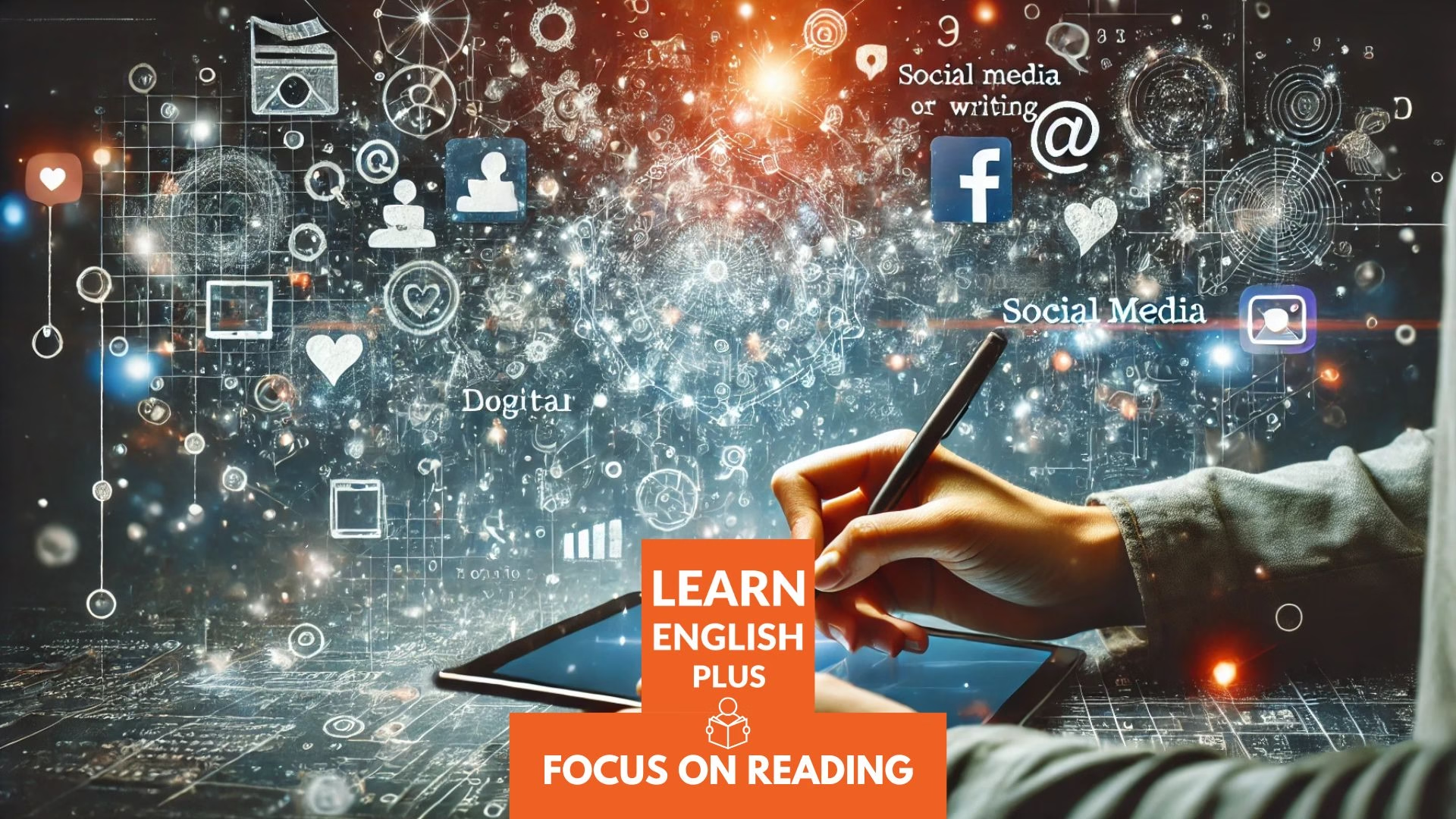Welcome back, dedicated learners! In this reading passage, we’ll be exploring the profound influence of digital media on how we write and communicate today. As you prepare for your international exams like the SAT, TOEFL, and IELTS, it’s crucial to develop your ability to understand complex texts and think critically about the information presented.
Here are some helpful reading strategies to keep in mind as you tackle this exercise:
- Understand the Context: Before reading deeply, think about your own experiences with digital media and writing. How has it changed the way you read and write?
- Identify Cause and Effect: As you read, look for how digital media has caused specific changes in writing styles and practices.
- Distinguish Between Fact and Opinion: Try to identify statements that are presented as facts versus the author’s interpretations or opinions.
- Make Inferences: Sometimes the answer to a question isn’t directly stated in the text. You’ll need to make logical deductions based on the information provided.
- Review and Reflect: After reading and answering the questions, take a moment to review the passage and your answers. What did you learn? What could you have done differently?
For this passage and the 10 questions that follow, aim to complete everything within 15-20 minutes to continue honing your time management skills for your exams.
Now, let’s delve into the reading passage!
Reading Passage
The advent of digital media has ushered in a transformative era for contemporary writing, impacting not only the modes of dissemination but also the very structure and style of written communication. The shift from predominantly print-based platforms to a digital landscape has fostered an environment characterized by immediacy, interactivity, and a blurring of traditional boundaries between author and audience. This evolution has given rise to new forms of writing, altered established conventions, and presented both opportunities and challenges for writers and readers alike.
One of the most significant impacts of digital media is the emphasis on brevity and conciseness. Platforms like social media and microblogging sites necessitate succinct communication, leading to the proliferation of shorter sentences, the use of abbreviations and acronyms, and a general tendency towards more direct and informal language. This shift towards brevity can be attributed to the fast-paced nature of online consumption and the limited attention spans often associated with digital environments.
Furthermore, digital media has fostered a culture of interactivity and engagement. Readers are no longer passive recipients of information but active participants who can comment, share, and contribute to the conversation surrounding a piece of writing. This has led to the rise of collaborative writing projects, online forums, and the integration of multimedia elements into written content, creating a more dynamic and multifaceted reading experience.
The digital landscape has also democratized the process of writing and publishing. Individuals now have unprecedented access to platforms where they can share their thoughts and ideas with a global audience, bypassing traditional gatekeepers of the publishing industry. This has led to a proliferation of diverse voices and perspectives, enriching the overall landscape of contemporary writing. However, it has also raised concerns about the credibility and quality of information, as well as the challenges of navigating an oversaturated information environment.
Moreover, digital media has influenced the very style and structure of writing. The ease of linking and hyperlinking has encouraged a more non-linear approach to reading and writing, where readers can jump between different pieces of information with ease. This has led to the development of writing styles that are more modular and interconnected, often incorporating embedded links and multimedia elements to enhance understanding and engagement.
In conclusion, digital media has fundamentally reshaped contemporary writing, fostering brevity, interactivity, democratization, and a more fluid and interconnected style. While these changes present numerous opportunities for innovation and communication, they also necessitate a critical awareness of the challenges related to information quality and the evolving nature of reader engagement in the digital age.
Reading Comprehension Quiz
Keywords and Phrases for Advanced English Language Learners
Here are 12 keywords and phrases from the reading with their conversational definitions and usage:
- Advent: (Used in: “The advent of digital media has ushered in a transformative era…”) This refers to the arrival or beginning of something new and important. In this case, it marks the start of the digital media age.
- Ushered In: (Used in: “The advent of digital media has ushered in a transformative era…”) This phrase means to cause something new to begin or to introduce something. Here, it indicates that digital media has brought about a new period in writing.
- Transformative Era: (Used in: “…has ushered in a transformative era for contemporary writing…”) This refers to a period of significant and fundamental change. It highlights the profound impact of digital media on writing.
- Modes of Dissemination: (Used in: “…impacting not only the modes of dissemination but also the very structure…”) This refers to the ways in which something, like written content, is spread or distributed. Digital media has introduced new ways to share writing.
- Fostered an Environment: (Used in: “…has fostered an environment characterized by immediacy…”) This means to have helped something to develop and grow. Digital media has created a setting where certain characteristics of writing have become prominent.
- Immediacy: (Used in: “…an environment characterized by immediacy, interactivity…”) This refers to the quality of happening or being done without delay. Digital media allows for instant communication.
- Interactivity: (Used in: “…immediacy, interactivity, and a blurring of traditional boundaries…”) This describes the ability of users to interact with and influence digital content.
- Proliferation: (Used in: “…leading to the proliferation of shorter sentences…”) As discussed in the quiz, this means a rapid increase in number or amount.
- Succinct Communication: (Used in: “…necessitate succinct communication…”) This refers to expressing oneself clearly and briefly. Digital platforms often require writing that gets to the point quickly.
- Passive Recipients: (Used in: “Readers are no longer passive recipients of information…”) This describes someone who receives information without actively participating or responding. Digital media has changed readers from being passive to active.
- Democratized the Process: (Used in: “The digital landscape has also democratized the process of writing…”) This means to have made something accessible to everyone, regardless of their background or status. Digital media has made it easier for anyone to share their writing.
- Oversaturated Information Environment: (Used in: “…challenges of navigating an oversaturated information environment.”) This refers to a situation where there is too much information available, making it difficult to find what is relevant or reliable.











0 Comments